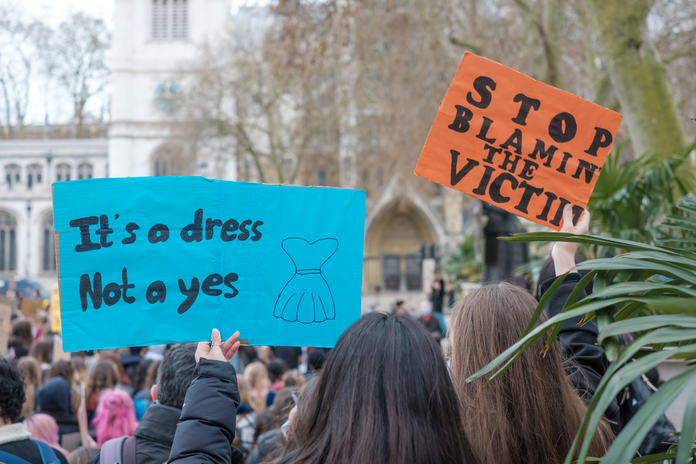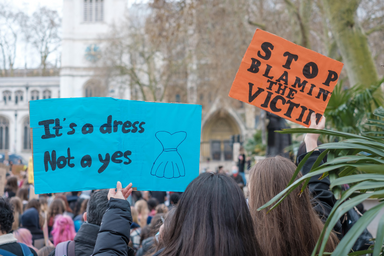A Mum in a small gathering in our street for Sarah Everard turned to me and said: “Things have got to change. We’ve been silent for far too long. It’s got to stop. It’s just got to.”
I wish I could tell you that I felt brave and inspired at that moment, I really do. But if I did I’d be lying. The truth is that I felt the wounds I thought I had pushed deep enough inside me involuntarily rise to the surface. Finding that they are still raw beneath a thin layer of skin, and tender to the touch. If you want to know the honest truth all I wanted to do was retreat into the protective layers of silence I had hidden inside for so long. To push those still bleeding wounds back down into secret, dark places and never ever touch them again. The words she said hit me with an almost physical force. I felt the wind being pushed out of my lungs and an aching sensation in my chest as if I had just been punched.
But she’s right. It has got to stop. I’ve got to stop hiding in silence. I owe that much to Sarah Everard.
I was reminded of the wonderful words of Margaret Atwood’s in her feminist dystopian novel The Handmaid’s Tale. When all the women are fired from their jobs for no better reason than they are women she thinks: ‘What was it about this which made us feel like we deserved it?’ Here she addresses something just as important as how men speak to women. She is addressing how we, as women, speak to ourselves.
I think Atwood names the emotion which lurks beneath the questions one can so easy to get lost in when trying to pin down where everything went wrong leading up to sexual assault:
Would it have happened if I had worn a longer skirt?
If I’d only called Mum to pick me up and not walked home?
If I hadn’t had that last drink?
What was it about this which made me feel like I deserved it?
Because at least for me the easiest person to direct anger at is not men, but myself. To me, guilt has always felt more comfortable than justice. It’s where I’ve learnt to make my home. And it is then that I realised that there is a bullet in the centre of my wounds. That bullet is called guilt.
But what can I do? It is easy to feel overwhelmed by a feeling of insignificance, to feel defeated before you’ve even started. How can I even begin to deconstruct the gendered societal beliefs which feel rock solid?
But I suppose a place I can start is with myself. I can start with investigating those wounds rather than leaving them in hope that the bullet will magically disappear. Even though it hurts, especially when it hurts. When I start to investigate, to trace these questions we ask ourselves back to their root what I find is starvation of love and forgiveness. And I don’t mean for men, but for myself. Perhaps it can begin with asking the hardest thing of myself, which is unravelling the lies which have bound me for as long as I can remember. The lie that we, I am to blame.
It starts with forgiving myself for making that prison of guilt feel like a home.



